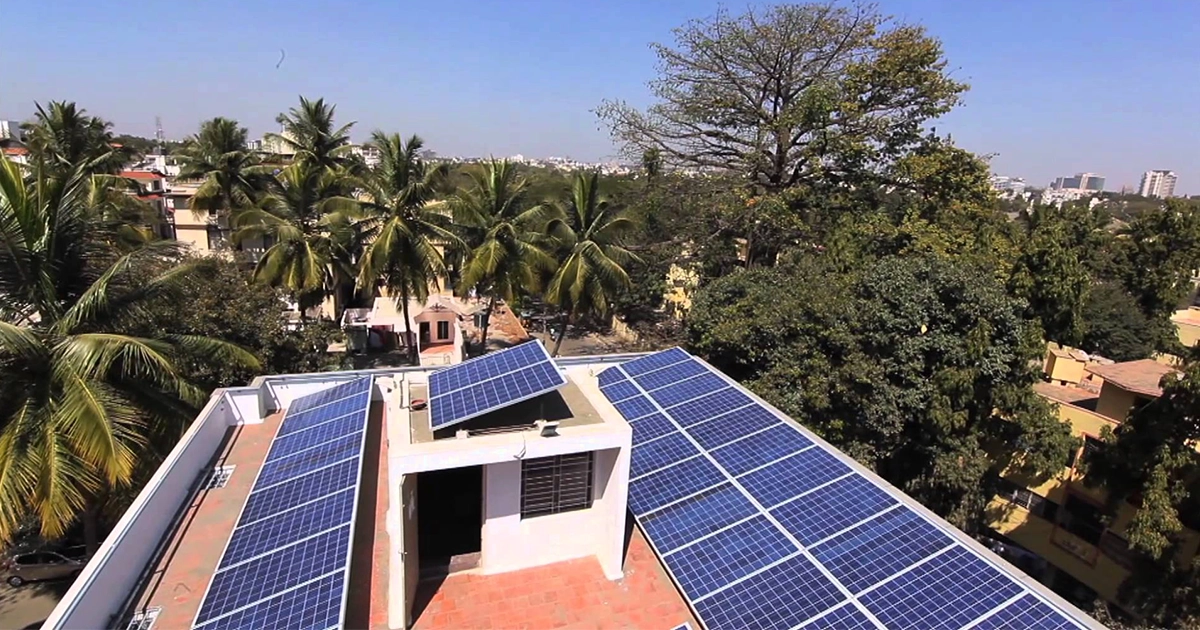In today’s world, where sustainability and eco-friendliness are becoming increasingly important, home solar energy stands out as a beacon of hope. Harnessing the power of the sun to generate electricity offers a myriad of benefits, both for homeowners and the environment. Let’s delve into the advantages of adopting solar energy for your home. The decreasing solar panel costs have made renewable energy more accessible to homeowners across the country.
Understanding Solar Power Systems
Solar power systems comprise various components working in tandem to capture sunlight and convert it into usable electricity. These include solar panels, inverters, batteries (for storage), and a monitoring system to track energy production.
Advantages of Home Solar Energy
Environmental Benefits
The most prominent advantage of home solar energy is its positive impact on the environment. By utilizing a clean and renewable energy source, homeowners significantly reduce their carbon footprint and contribute to combating climate change.
Financial Savings
Investing in solar energy can lead to substantial long-term savings on electricity bills. Once the initial setup costs are recouped, solar panels continue to generate free electricity, offering considerable financial relief to homeowners.
Energy Independence
Home solar energy grants homeowners independence from traditional utility providers. With a reliable solar power system in place, individuals can generate their electricity, reducing dependence on external sources and fluctuating energy prices.
Impact on Carbon Footprint
Adopting home solar energy contributes to a significant reduction in greenhouse gas emissions. By relying on clean energy generated from sunlight, households play a crucial role in promoting sustainability and mitigating environmental degradation.
Government Incentives and Rebates
Governments worldwide offer various incentives and rebates to encourage the adoption of solar energy. These include tax credits, grants, and subsidies, making solar installations more affordable and attractive to homeowners.
Long-Term Investment
Installing solar panels is not just an expense but a long-term investment with promising returns. Over time, homeowners can expect a significant return on investment (ROI) through energy savings and potential increases in property value.
Reliability and Durability
Solar panels are known for their reliability and durability, requiring minimal maintenance over their decades-long lifespan. With proper care, solar installations can withstand harsh weather conditions and continue to operate efficiently.
Energy Security
Home solar energy provides an added layer of energy security, especially during power outages. With battery storage solutions, homeowners can ensure a continuous power supply, enhancing resilience and reducing dependence on the grid.
Flexibility and Scalability
Solar power systems offer flexibility and scalability, allowing homeowners to tailor installations according to their specific energy needs. With modular designs and expansion options, it’s easy to adjust the system size as requirements change.
Community Impact and Social Responsibility
By embracing home solar energy, homeowners set a positive example for their communities and contribute to the collective effort towards a sustainable future. Engaging with neighbors and sharing experiences can inspire broader adoption and foster a sense of social responsibility.
Overcoming Common Misconceptions
Despite its numerous benefits, home solar energy still faces misconceptions regarding initial costs, reliability, and aesthetics. Addressing these concerns through education and awareness is crucial in promoting wider acceptance and adoption.
Choosing the Right Solar Solution
Selecting the appropriate solar solution involves careful consultation and assessment of individual needs and circumstances. Working with reputable solar providers ensures customized installations that maximize efficiency and savings.
Installation Process
While professional installation guarantees optimal performance and adherence to regulations, some homeowners may opt for DIY solutions. Regardless of the approach, obtaining necessary permits and complying with local regulations is essential.
Maintenance and Monitoring
Regular maintenance and monitoring ensure the continued efficiency and performance of solar installations. Periodic checkups and the use of monitoring systems help detect any issues early on, preventing potential disruptions.
Conclusion
Home solar energy offers a multitude of advantages, ranging from environmental sustainability and financial savings to energy independence and resilience. By embracing solar power, homeowners not only reduce their carbon footprint but also contribute to a cleaner and more sustainable future for generations to come.

